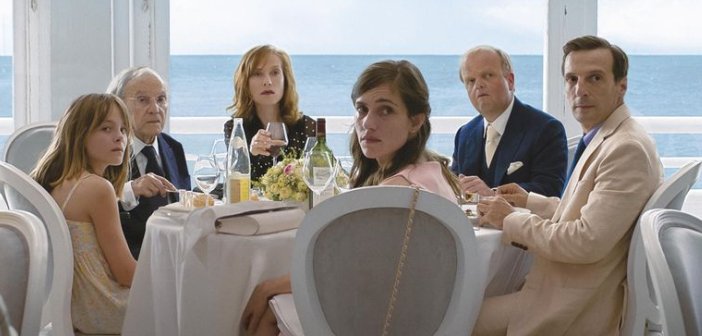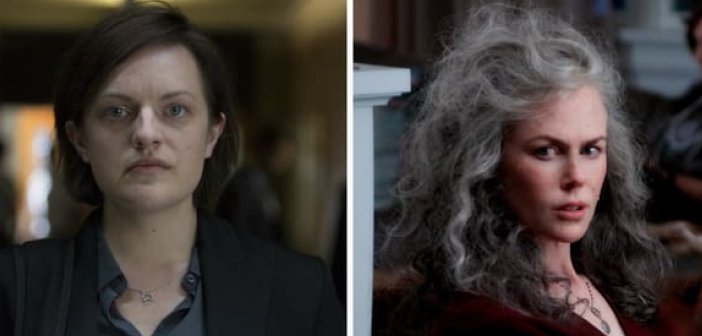Our Top Picks from Cannes 2017
Pretentious debates regarding the future of cinema, reports of boos and snide critics’ comments, weird photos of Nicole Kidman kissing the top of her young co-star Elle Fanning’s head – yes, it’s that time of year. Cannes 2017! To have a festival where the new films by the likes of Todd Haynes, Bong Joon-ho and Michael Haneke are premiered and then not invite me is very cruel. Still, until I get that golden ticket in the post (that is how Cannes invites are doled out, right Donald Clarke?), I must settle for avidly drooling over the latest reviews from France. The following are my most anticipated films which played at the festival.
Good Time – Dir. Josh and Benny Safdie
[arve url=”https://www.youtube.com/watch?v=AVyGCxHZ_Ko”]
Ever since the conclusion to the Twilight franchise, Robert Pattinson’s choice of movies (The Rover, Maps to the Stars, Lost City of Z) has been stellar. Critics are finally taking note as Good Time has come from seemingly nowhere to being considered one of the best entries at this years festival. Following a bank robbery, Pattinson’s Connie – the perpetrator – gets away. However, his partner-in-crime and special needs brother, Nick (Benny Safdie), gets apprehended by police. Set over the course of one night, Connie attempts to break his brother out of prison – something made possible by Nick’s planned move to another jail due to a fight.
According to reports, Good Time is a “propulsive”, “visceral” and “adrenaline fuelled” genre movie with a keen sense of character and place. Upcoming directors Josh and Benny Safdie seem to have melded their trademark grit (as evident in their previous film, heroin centred drama Heaven Knows What) with an action-packed script evoking comparisons to Dog Day Afternoon and Scorsese’s cult odyssey After Hours.
Happy End – Dir. Michael Haneke
Dubbed “a satanic soap opera of pure sociopathy” in a five-star rave by The Guardian, Happy End reportedly sees film master Michael Haneke (Hidden, Funny Games, The White Ribbon) return to old themes but with his best cast yet and his typical razor-sharp skill. Set during the European Refugee Crisis, the drama focuses upon the toxic antics of a bourgeois family in Calais. The always perfect Isabelle Huppert (fresh off a Golden Globe win for Elle) stars as Anne, the eldest sibling and inheritor of a lucrative transport business from her father Georges (the legendary Jean-Louis Trintignant). The latter is suffering from dementia, spouting racial abuse at his Moroccan servants. Meanwhile, Anne is engaged to a British lawyer handling a UK deal, Lawrence (Toby Jones), and is attempting to deal with a fallout at work. Her drunken son, a site advisor, has caused a catastrophic accident, one believed to lead to a huge civil suit. Plus, there’s Anne’s brother, Thomas (Mathieu Kassovitz), forced to look after his estranged daughter after his ex-wife suffers a drug overdose.

Anyone aware of Haneke’s work will know that Happy End is a misnomer. After all, Funny Games is actually not humorous but is in fact, one of the most disturbing films ever made. However, he is a genius, one whose movies are very layered, capable of being interpreted on multiple levels. At face value, they are just great stories. However, they’re also brilliant exercises in building sustained dread. Plus, they often work as intellectual, complex allegories for societal issues, whether it be the refugee crisis or a critique of bourgeois ideals.
Jupiter’s Moon – Dir. Kornel Mundruczo
[arve url=”https://www.youtube.com/watch?v=KCyk8qbolWw”]
Continuing on from the political charged setting of Happy End, there’s Jupiter’s Moon. It’s the latest from Hungarian director Kornel Mundruczo, the filmmaker behind White God, a revenge narrative from the perspective of a dog that made a stir back in 2014. His latest begins with an immigration raid captured in “a single spectacular Steadicam shot”. It’s here, the protagonist, a young illegal Syrian migrant, is gunned down. However, he survives the attack – waking with the newfound ability to levitate.
Jupiter’s Moon isn’t getting the best reviews. A.V. Club critic A.A. Dowd called it “goofy” in its “filtering of the Syrian refugee crisis through the prism of an X-Men movie”. However, it apparently features some jaw-dropping set-pieces. Dowd in the same review stated Jupiter’s Moon features “the most muscularly elaborate staging in a quasi-indie since Children of Men”. That more than alone warrants a look. Plus, it’s generally fascinating to see another culture’s take on typical Hollywood fare. Those tired of the same formulaic beats Hollywood superhero films rely on (looking at you, Doctor Strange), may get a kick out of Mundruczo’s socially-inflected take on the genre.
The Killing of a Sacred Deer – Dir. Yorgos Lanthimos
A re-teaming of Colin Farrell and Yorgos Lanthimos – the director of the hilarious, depressing and absurdist The Lobster – Sacred Deer focuses upon the familial bond between heart surgeon, Steven (Farrell), and sinister young man, Martin (Irish rising star and shooter of cats Barry Keoghan). As the audience learn the reason for the two’s closeness, the relationship begins to threaten the life the doctor has built with his wife, Anna (Nicole Kidman, one of her four projects at Cannes).
Drawing comparisons to Pasolini, Sacred Deer appears to have further cemented Lanthimos (who also directed Alps and Dogtooth and kick-started the Greek “weird wave”) as one of the most distinct voices in world cinema. In a five-star review, Donald Clarke described the film as “oblique” and “odd” but also “nightmarish” and “unsettling”. Like The Lobster – which served as an impressive allegory for how society views relationships – Sacred Deer seems to have a sociological bent. As Clarke notes, the film is about: “a comfortable world being confronted with the universal chaos it daily seeks to ignore”. It sounds utterly mysterious and fascinating and it’s terrific to see Farrell, a very underrated actor, team with such a phenomenal talent. The Killing of a Sacred Deer collected Best Screenplay at Cannes alongside Lynne Ramsey’s You Were Never Really Here.
Okja – Dir. Bong Joon-ho
[arve url=”https://www.youtube.com/watch?v=AjCebKn4iic”]
Unfortunately caught in a stupid debate on whether movies released on Netflix deserve to compete for Palme d’Or (they do, duh) and plagued by technical issues during a screening, it’s a credit to Okja that it has still received such a positive reception. Directed by the incredible Bong Joon-ho (Memories of Murder, The Host, Snowpiercer), the Netflix film centres upon a young Korean farmgirl named Mija, who must protect her best-friend, Okja – a massive pig-like animal – from a villainous multi-national company (represented by Tilda Swinton’s CEO and Jake Gyllenhaal’s quirky zoologist).
From the pen of Jon Ronson (writer of The Psychopath Test and the screenplay for 2014’s winning comedy Frank) and the man who made the greatest 21st century monster movie, The Host – Okja sounds like a blast. Its plot sounds so original. Plus, when one hears reports that Gyllenhaal’s performance is drawing comparisons to Chris Tucker in The Fifth Element and Pee Wee Herman, it can’t help but raise curiosity.
You Were Never Really Here – Dir. Lynne Ramsay
Based upon a novella by Jonathan Ames (creator of HBO’s cult comedy Bored to Death), You Were Never Really Here stars Joaquin Phoenix as a damaged war veteran hired to rescue a young girl from a sex trafficking ring.
If that sounds too much like Taken to you, do not fret. Instead, in the hands of Lynne Ramsay (the unforgettable We Need to Talk About Kevin) and with a soundtrack by Radiohead’s Jonny Greenwood, You Were Never Really Here reportedly resembles a more nightmarish but meditative take on neo-noirs such as The Long Goodbye, Taxi Driver or The Limey. Anyone who knows Phoenix’s work will know he excels at playing broken, mentally wounded men (see The Immigrant or The Master, in the latter he is a shell-shocked WWII vet). Plus, the movie is only 85 minutes, disproving a notion that movies must be way over two hours to be considered worthy. As mentioned already, You Were Never Really Here picked up the Best Screenplay award as well as the Best Actor award for Joaquin Phoenix’s role.
Top of the Lake: China Girl – Created by Jane Campion and Gerard Lee

Not a film but instead a TV show – back in 2013, In the Cut director Jane Campion returned to television with Top of the Lake. The show starred Elizabeth Moss as Robin Griffin, a Sydney detective specialising in sexual assault. Praised as being one of the first series to explicitly deal with rape culture, it now returns for a second season. Set four years after the first, Griffin is teamed with a new partner (Game of Thrones’ Gwendoline Christie) to investigate the Sydney sex trade, something kick-started from a suitcase washing up onshore “with black human hair coming from the inside”. Nicole Kidman (who along with Sacred Deer, also stars in The Beguiled and How to Talk to Girls at Parties at Cannes) also features as a “recently-gone lesbian mother” whose path crosses with Moss’ character. According to The Hollywood Reporter, the second season “bristles with the same kind of sexual, psychological and socio-political frankness” that made the first so addictive.
In the end it was Force Majeure director Ruben Ostlund who collected the coveted Palme D’Or for his film The Square. Check out the full list of winners here.

